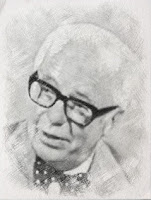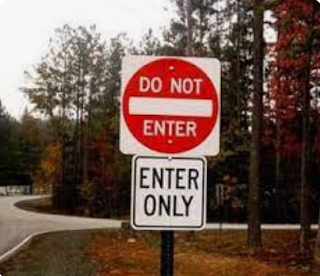If you want to pass an economics test these days or become well-known in politics, you will accept without question the Keynesian doctrine that there is a necessary tradeoff between inflation and employment. If, however, you want a sound economy that operates for everyone instead of only a financial or political elite, then you will jettison the idea immediately.
 |
| J.M. Keynes |
According to what is now standard doctrine, and which has been proven false time and time again, if you want low inflation, you must be willing to suffer high unemployment. If you want high employment, you must be willing to endure high inflation. That answer will get you an “A” on the economics test, even though it is completely false.
Why? There are several reasons, not the least of which is the fundamental assumption underlying Keynesian theory: the Currency Principle. The Currency Principle is the belief — again proven false repeatedly — that the quantity of money determines the level of economic activity. This is further exacerbated by the fact that Keynes’s definition of money, which is general purchasing power created by the government, utterly destroys private property and personal initiative.
The truth is that the Currency Principle makes no sense (and that can be proved mathematically) because money derives from private property in production, not the other way around. It is not, and could never be the case, that production derives from money as Keynes assumed. If, as all Keynesian economics takes for granted, money is backed by production (“what it will buy” — a Keynesian dogma), and production comes from money . . . then where did the original production come from to back the money that creates production? Ask any Keynesian that question and he or she will either change the subject or tell you how stupid you are to ask such a silly question . . . and then change the subject.
Then there’s the definition of money itself. “Everyone knows” (meaning that everyone parrots) the idea that money represents general purchasing power and is a special creation of the State. What specifically constitutes money and its value is the decision of the authoritarian state, which has the power to re-edit the dictionary and alter reality any time it chooses.
Don’t believe it? That’s all in the first pages of Keynes’s A Treatise on Money, published in 1930, and intended to be his magnum opus . . . until critics pointed out its illogic and collectivist (socialist) assumptions. Then he came out with his General Theory of Employment, Interest and Money, which may hold the record for the most baffling contradictions in the entire field of economics — which we’ll get to, below.
But for now, what is money? Perhaps Louis Kelso said it best:
 |
| Louis Kelso |
Money is not a part of the visible sector of the economy. People do not consume money. Money is not a physical factor of production, but rather a yardstick for measuring economic input, economic outtake and the relative values of the real goods and services of the economic world. Money provides a method of measuring obligations, rights, powers and privileges. It provides a means whereby certain individuals can accumulate claims against others, or against the economy as a whole, or against many economies. It is a system of symbols that many economists substitute for the visible sector and its productive enterprises, goods and services, thereby losing sight of the fact that a monetary system is a part only of the invisible sector of the economy, and that its adequacy can only be measured by its effect upon the visible sector. (Louis O. Kelso and Patricia Hetter, Two-Factor Theory: The Economics of Reality. New York: Random House, 1967, 54-55.)
In other words, money measures value that exists. It does not itself create value, any more than an inch creates length, or a pound creates weight. Keynes’s most fundamental assumption about money is exactly the opposite of reality. And, since truth is defined as conformity with reality, Keynes’s most fundamental economic postulate is false.
That does not mean, however, that Keynes’s conclusions are false. It just means that they are not necessarily true. There are other ways to demonstrate their falsity. Today we will look at the alleged tradeoff between inflation and employment.
In the General Theory, Keynes asserted that all production derives from money, that is, from existing savings, and defines savings as the excess of production over consumption. As we noted just above, this begs the question as to where the first production comes from, but we’ll pass on that to get to the next contradiction.
Since the only way for most people to get income is by wages and welfare (demonstrably false, but let it pass), and capital instruments only enhance labor and provide the environment within which labor can be productive (again, false), when there is high unemployment, the government must create value by issuing new money (false) so that prospective employers can reap greater profits by supplying fewer goods and services at higher prices (“forced savings”), which will allow them to invest in new capital, thereby creating new jobs (false again — advancing technology removes human labor, it does not create jobs).
That being the case (which it isn’t, since every step of the way is a demonstrable falsehood or logical fallacy), it is absolutely essential to inflate the currency to create jobs . . . except that in pure Keynesianism, it isn’t real inflation until after full employment has been reached. That’s why we needed neo-Keynesianism when ordinary people didn’t accept Keynes’s new definition of inflation as a rise in the price level only after reaching full employment. Other rises in the price level before reaching full employment are due to what Keynes vaguely called “other factors.”
Of course, anyone not educated in economics would instantly assume that the “other factors” might consist of a bad definition of money, a contradictory definition of inflation, a lack of understanding of how technology functions, and a failing grade in high school algebra, but the academics and politicians in charge of today’s global economy know better. The “other factors” are a lack of faith in the power of government, stupid people who refuse to behave as Keynes said they must, and not enough money being created and spent by politicians and academics.
Don’t worry if you don’t understand government policy and the whole debt crisis. It’s nothing to worry about, because Keynes said all the government has to do is re-edit the dictionary, change the definition of reality, and everything will be fine as long as we lie to ourselves long enough.
This is because Keynesian economics is built on the assumption that there are absolutely no absolutes, and if you just believe something long enough and hard enough, it will come true. As he said, “For at least another hundred years we must pretend to ourselves and to every one that fair is foul and foul is fair; for foul is useful and fair is not. Avarice and usury and precaution must be our gods for a little longer still. For only they can lead us out of the tunnel of economic necessity into daylight.” (John Maynard Keynes, “Economic Possibilities for Our Grandchildren,” Essays in Persuasion, 1931.)
In other words, lie to yourself long enough and it becomes true. Nowhere was this applied with more devotion than in Keynes’s definition of money:
It is a peculiar characteristic of money contracts that it is the State or Community not only which enforces delivery, but also which decides what it is that must be delivered as a lawful or customary discharge of a contract which has been concluded in terms of the money-of-account. The State, therefore, comes in first of all as the authority of law which enforces the payment of the thing which corresponds to the name or description in the contract. But it comes in doubly when, in addition, it claims the right to determine and declare what thing corresponds to the name, and to vary its declaration from time to time — when, that is to say, it claims the right to re-edit the dictionary. This right is claimed by all modern States and has been so claimed for some four thousand years at least. It is when this stage in the evolution of money has been reached that Knapp’s Chartalism — the doctrine that money is peculiarly a creation of the State — is fully realized. (John Maynard Keynes, A Treatise on Money, Volume I: The Pure Theory of Money. New York: Harcourt, Brace and Company, 1930, 4.)
#30#







